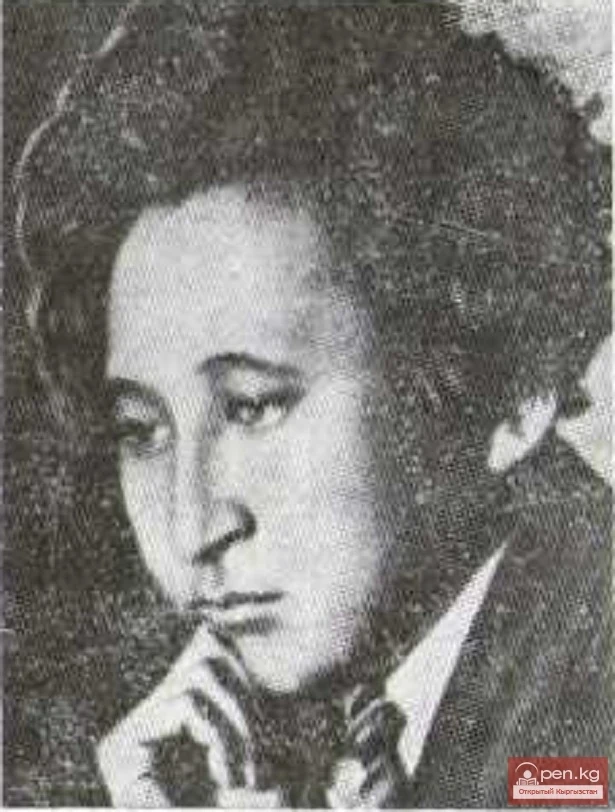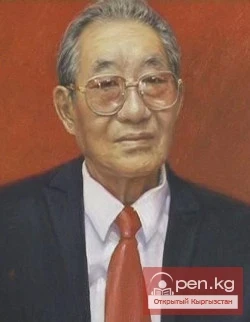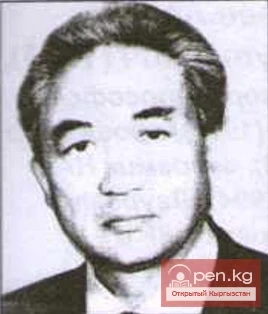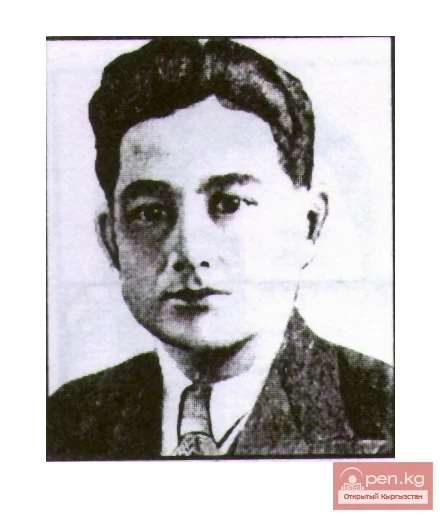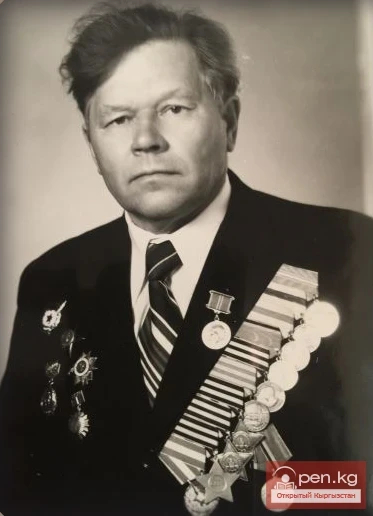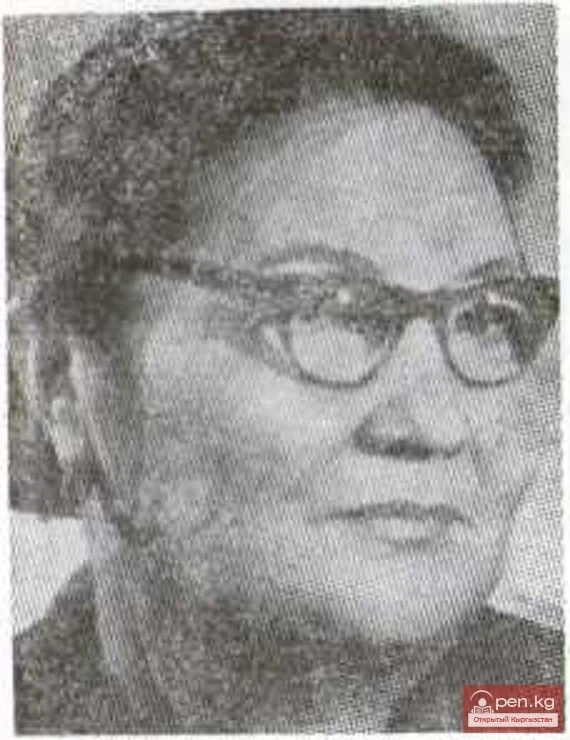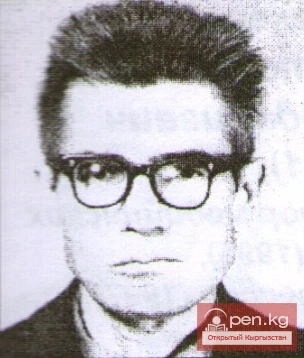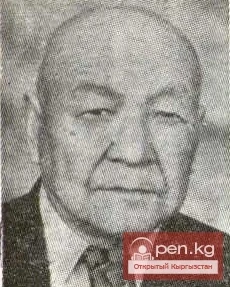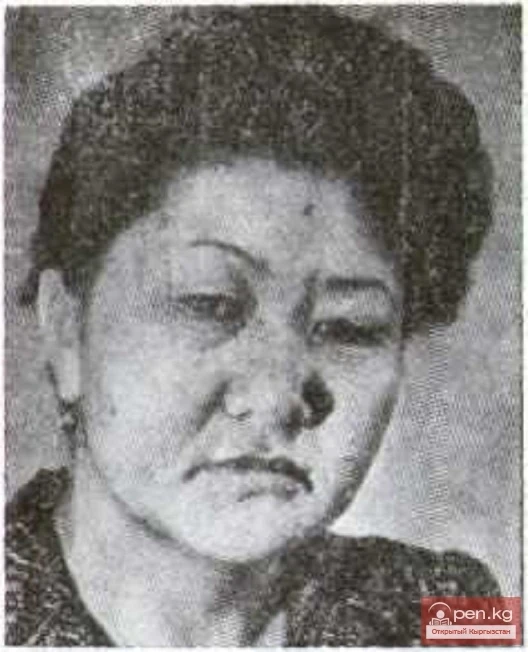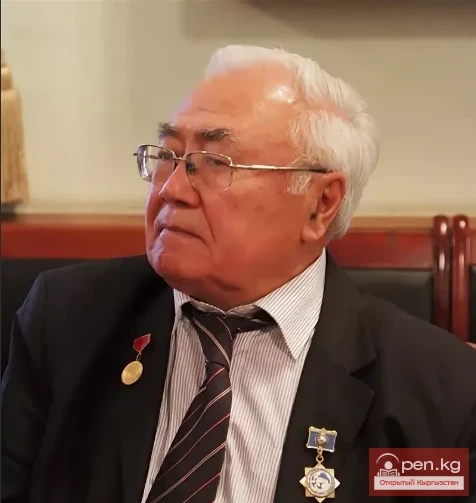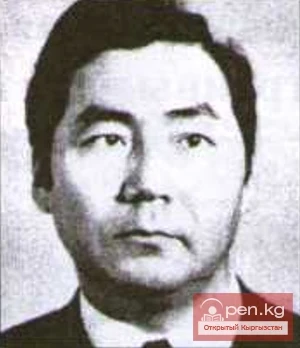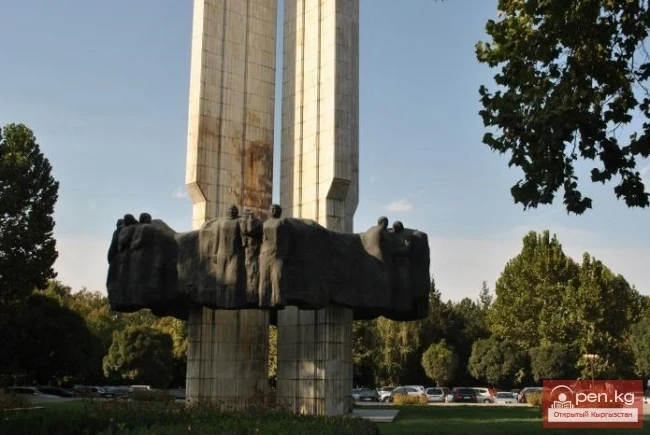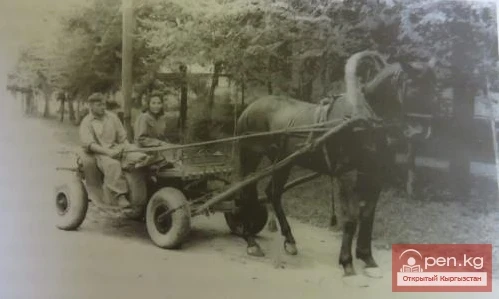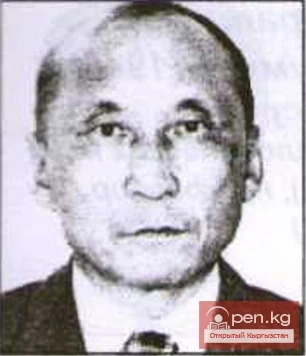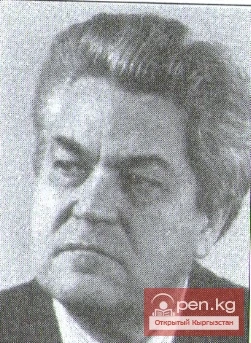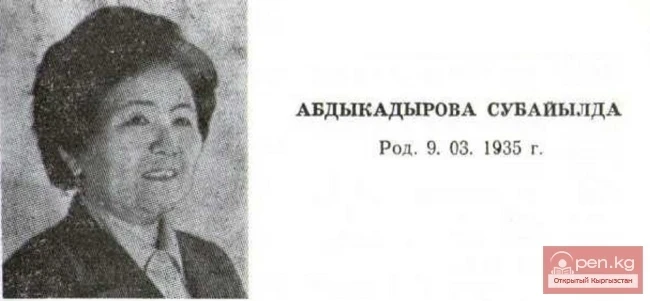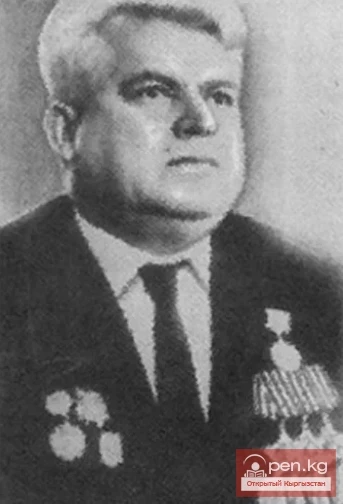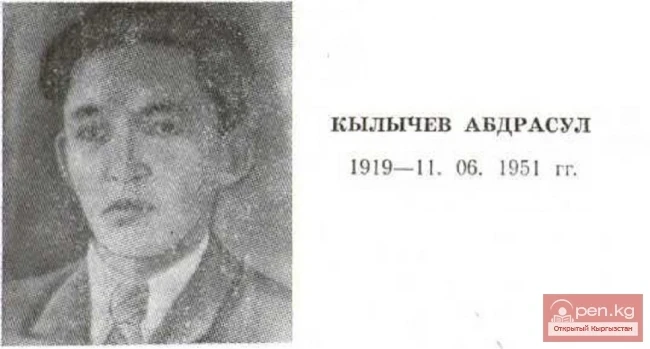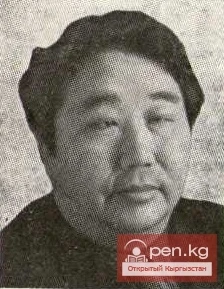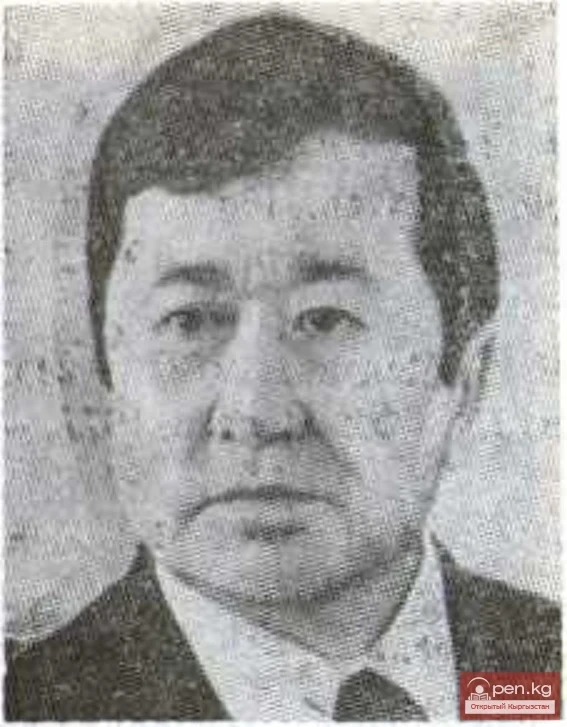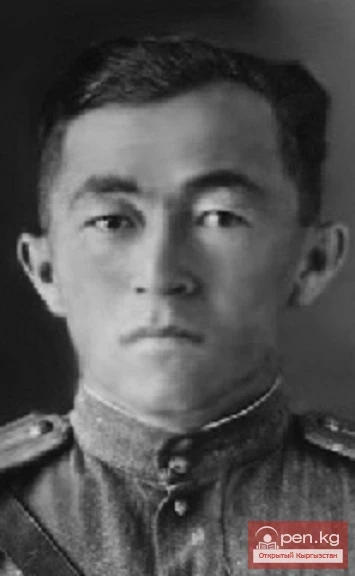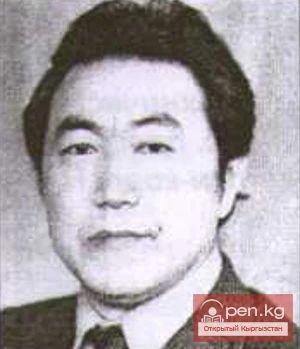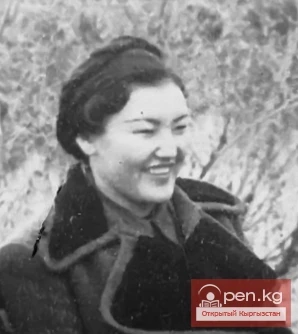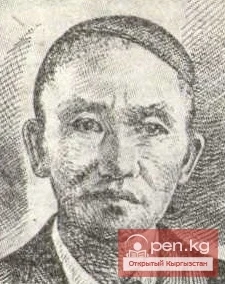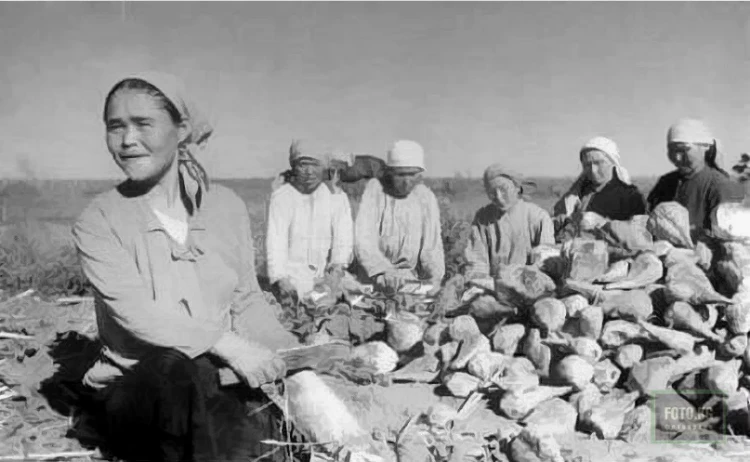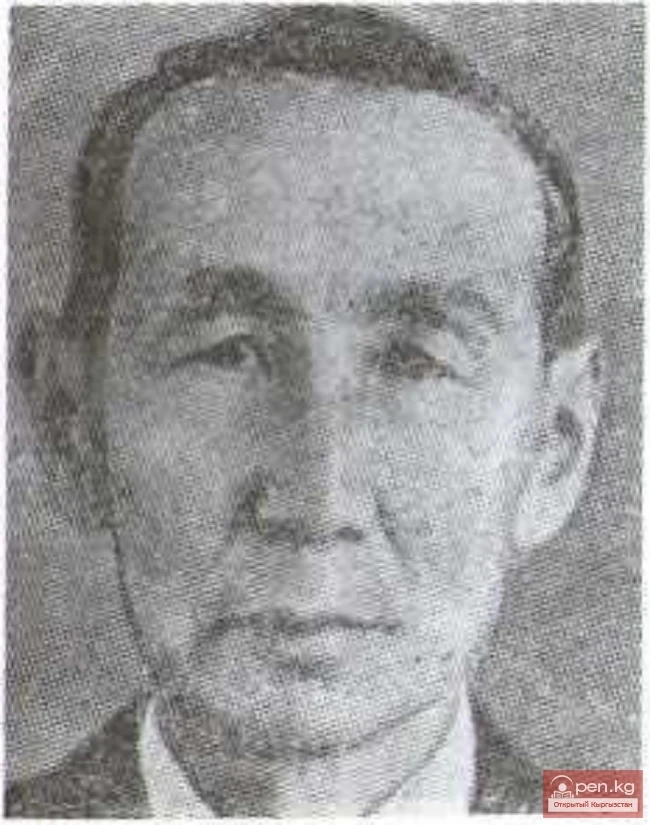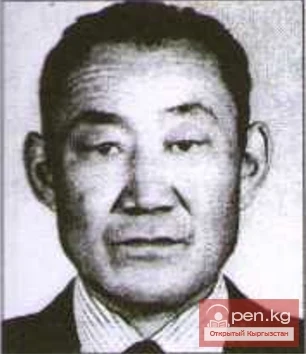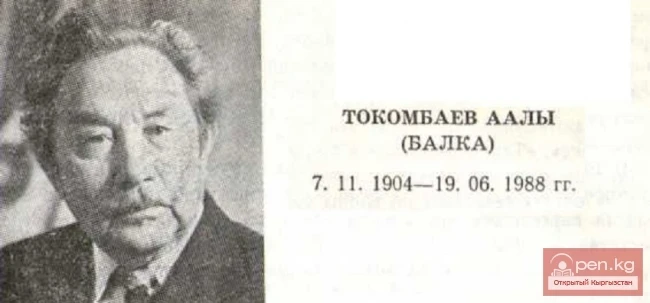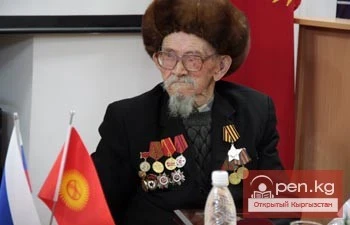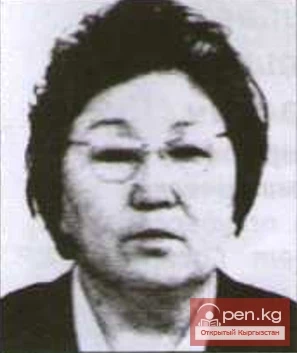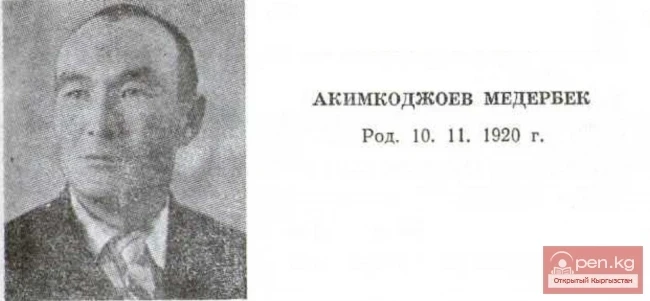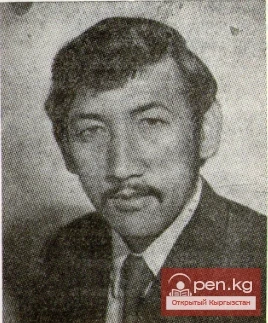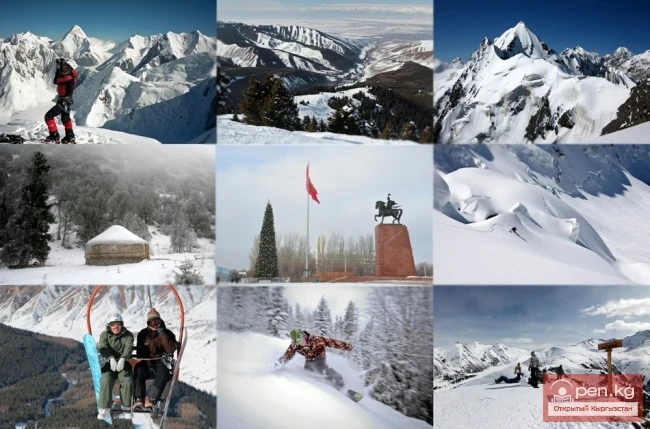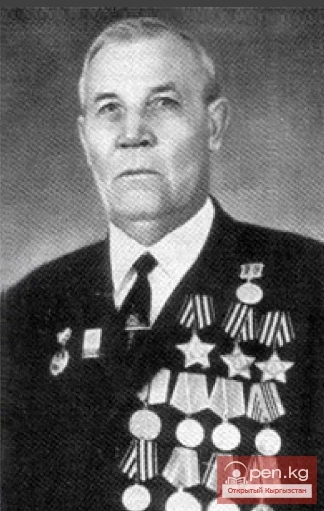
Filchakov Mikhail Ivanovich
Mikhail Ivanovich was a Soviet serviceman, a participant in the Great Patriotic War, a full knight of the Order of Glory, a reconnaissance observer of the 120-mm mortar battery of the 170th Guards Rifle Regiment, and a Guards Private at the time of his nomination for the Order of Glory 1st class.
He was born in 1910 in the village of Lyubitsk (now in the Pugachevsky District of the Saratov Region). In 1939, he moved to the city of Frunze. On January 4, 1942, he was drafted into the Red Army by the Frunze City Military Commissariat. He was at the front from March 1942, fighting on the Southwestern, 3rd Ukrainian, and 1st Belorussian fronts.
He crossed the Northern Donets, Dnieper, Southern Bug, Dniester, Vistula, and Oder rivers. He liberated Odessa, fought near Warsaw, and stormed Berlin.
For his courage and fearlessness in battles against fascism, he was awarded the Orders of Glory III and II classes, as well as the medals "For Courage" and "For Military Merit." By the decree of the Presidium of the Supreme Soviet of the USSR dated May 15, 1946, he was awarded the Order of Glory I class.
He had an extraordinary military fate. Shortly after being drafted into the army, he found himself on the front lines. For his steadfastness and courage, he was awarded the medal "For Courage," and a month later, the medal "For Military Merit." Five months later, he received the Order of Glory III class. At the very beginning of his service, he was assigned the rank of Guards Private, which he carried with honor throughout the war.
Here is what was written about him in the award documents: "The path of the Guards reconnaissance observer of the mortar battery, Guards Private Filchakov M. I. — Northern Donets — Dnieper, Southern Bug — Odessa is marked by his glory and feats for the benefit of the Motherland.
In the battles for the expansion of the bridgehead on the right bank of the Dniester River, he bravely and accurately carried out the orders of the command. Under heavy artillery and mortar fire, he conducted reconnaissance, identifying enemy firing positions and snipers, as a result of which three machine gun positions he discovered were destroyed by the battery. Day after day, being on the front line, he participated in repelling enemy counterattacks, personally killing 8 enemy soldiers and officers with his automatic fire, for which he is worthy of a government award — the Order of Glory III class.”
Mikhail Filchakov, in offensive battles from the Vistula River to the Oder bridgehead, proved himself to be a courageous and fearless scout. He repeatedly provided valuable information to the battery commander about the enemy.
On February 6, 1945, during the repulsion of an enemy counterattack in the city of Makshnov (6 km southwest of the city of Küstrin, Germany - now the city of Kostshin, Poland), while in the combat formations of the infantry, he stealthily concealed himself and, upon the approach of German tanks with a landing of automatic riflemen, opened fire with his automatic weapon, shooting the riflemen on two tanks, and captured one officer.
The pale February dawn was just breaking, but work was already in full swing at the front positions of the regiment. The infantry was engaged in the familiar and arduous task of digging into the ground. Rather, they were burrowing into it. The winters here, though not comparable to the Russian ones, still freeze the ground quite well.
And the enemy, it seemed, was stubbornly holding onto every meter of this land beyond the Vistula. Even now, they did not lose hope of regaining the advantageous bridgehead, to stop or slow our advance to the Oder by any means necessary.
In the midst of this common work, few noticed the unfamiliar private. He, apparently an experienced man, had procured a simple tool, and soon there was one more worker in the company. However, for some reason, the newcomer chose a spot for his trench somewhat off to the side and on a rise.
But they decided it was his business.
Little by little, they managed with the trenches. (Who can count how many they dug during the long years of war with soldiers' hands!)
Now they could take a closer look at the newcomer.
About thirty years old. Weathered uniform. A front-line soldier like any other. Perhaps he had just come from the hospital or with another reinforcements — there are plenty of them arriving at the front.
— Hey, buddy,— called out one of the infantrymen, a fighter with a tar-black tuft peeking out from under a faded cap. — Leave at least a little of the mound, or we won't have anything to hide behind. Better come smoke with us.
He nodded briefly — as if to say he understood the joke and the hint. But he only approached after he finished and carefully camouflaged his trench. Upon closer inspection, he turned out to be one of the Guards artillerymen and, evidently, not among the last in his field: under his unbuttoned padded jacket, two medals and a silver star of the Order of Glory were visible.
The newcomers were warmly offered a tobacco pouch, and the tufted one was meaningfully and playfully nudged in the ribs — see, they said, who you were trying to teach. Soon the soldiers learned that their new comrade was named Mikhail Ivanovich, with the surname Filchakov.
In Frunze, on a quiet street lined with poplars, his wife Anna, also Ivanovna, is waiting. He was a Guards Private, a reconnaissance observer of the mortar battery that had taken position nearby. In simpler terms, he was a spotter. That explains his choice of location for the trench.
Everyone's mood noticeably improved. Fire support is never superfluous for the infantry, and besides, a lucky man will be correcting the fire of our battery. How many scouts can you find who have escaped a bullet or a shell?
Just then, the kitchen and the duty personnel arrived. With conversations and jokes, behind which anxiety often hides, they began to prepare their mess kits. But they didn’t get to finish their meal. A shell exploded deafeningly behind and to the left, filling the air with a suffocating smell. Following that, a heavy machine gun started rattling from the far end of the field. The enemy, it seemed, was making another attempt to break through to the Vistula.
“To your places. To battle!” — came the hoarse voices of the squad leaders. The company scattered into the trench.
They withstood two waves of the attack. Thanks to the efforts of the Guards scout and his battery, the enemy machine gun soon fell silent.
After a brief adjustment, the 120 mm mortars targeted it. Now it was time to attack.
They moved forward together. And when they were within arm's reach of the enemy's front line of trenches, another machine gun opened fire from the right flank. It fired without restraint, as if enjoying the element of surprise. One by one, our soldiers fell, as if tripping over an invisible obstacle. The lines lay down, pressing into the snow-dusted field scorched by fire.
And then, from the darkening distant forest, tanks with infantry began to crawl out. The well-begun attack threatened to choke. A little more of this “lying down,” the command post understood, and there would be nothing left of the company.
— For God's sake, take him out, you bastard! - the thin captain, looking at the artillery scout as if he could hear him, exclaimed in desperation.
But Filchakov saw the whole danger of the situation himself. Not taking the binoculars from his eyes, he shouted into the radio the coordinates of the machine gun. Several agonizing minutes passed before the shells whistled overhead. Soon, dull thuds of explosions were heard in that direction. The machine gun no longer made a sound, having fallen silent amid the din of battle.
But those few minutes of confusion caused by the enemy machine gun were enough for the tanks to cover half the distance. With each second, it was shortening. The figures of the automatic riflemen on the angular armor were already visible, black muzzles of the directed guns.
At such a distance, it was too late to count on the battery's help. Unless, of course, to call fire on themselves. Filchakov was one of the first to understand this and looked questioningly at the captain: what shall we do?
— Fire on the landing! — the captain made the decision, and the company opened fire from the thinning barrels, cutting the riflemen off from the tanks.
Mikhail threw his now useless binoculars and radio to the bottom of the trench, checked the PPSh magazine. From now on, he had only one weapon with the infantry.
The tank closest to him rumbled by, blowing hot air from the oiled metal and smoke. After waiting a moment, Mikhail rose and no longer took his eyes off the swaying sight of the tank's rear, covered with riflemen. Not seeing how serious the danger was behind him, those sitting on the other tanks were startled and began to tumble off the armor.
The crews, fearing to be left without support and lose their landing, slowed down and began to fuss. The unexpected pause was noticed on our positions as well. The moment for a counterattack was very appropriate, and the company rose in unison.
And Filchakov needed to be rescued. In a minute or two, the Germans would figure out that one Russian was acting behind their lines, and then goodbye, Guardsman.
Soon the field echoed with shouts and the clatter of hand-to-hand combat. Seeing such a turn of events, the revived scout helped the infantry as best he could. So much so that by the end of the battle, he had a half-stunned German officer pinned to the ground with his knee.
They were already gathering in the twilight. Filchakov was friendly patted on the back, congratulated on the prisoner. The captain came over to shake his hand.
— Thank you, comrade, you saved us.
When the excitement of the battle subsided, they remembered the abandoned meal. They unpacked their mess kits, cursing the fascists and the attacking land. They ate in silence, without the usual jokes. Several mess kits remained untouched. Among those with whom Mikhail spent the quiet moments during the day, he did not see the freckled fighter and the elderly sergeant. When he asked about them, his neighbor just nodded briefly toward the covered bodies under tarpaulins.
The front-line paths of the artillery scout and his new friends would part for a short time after this battle. They would meet again in the spring. But already in Berlin itself. The company would thin out even more over the three months. Mikhail would lose several combat comrades from the battery. But he himself would not change his luck. He would return to his Anna Ivanovna without a single mark of war.
But none of them could know this. Just as the Guards Private could not know that for this battle on the Oder bridgehead, he would be awarded the Order of Glory II class by the command, and would finish the war as a full knight.
Guards Private Filchakov M. I. served in the regiment and fought from the Northern Donets to Berlin. He participated in the breakthrough of many enemy defensive structures and in crossing borders. During the offensive battles, he repeatedly carried out complex combat tasks from the command behind enemy lines.
In the offensive battles from the Oder bridgehead to Berlin and in the battles for the city of Berlin, Comrade Filchakov displayed exceptional examples of courage and heroism. Being in the combat formations of the infantry, he timely identified enemy firing positions, thereby contributing to the advance of our units.
Thus, in the battle on April 16, 1945, in the area of the Seelow Heights, under his correction, the following were destroyed: an enemy anti-tank battery, 3 mounted machine guns, and a significant number of enemy infantry.
In the battles during the storming of the city of Berlin, Comrade Filchakov set fire to an enemy self-propelled gun with its crew with a shot from a Faustpatrone.
For his courage and heroism in the Battle of Berlin, Mikhail Filchakov was awarded the Order of Glory I class.
The award document states briefly, and it seems everything was simple: “Captured one officer,” “set fire to a self-propelled gun,” but it is worth paying attention to the words: “day after day he was at the forefront...” and the apparent simplicity will disappear. In his front-line biography, there were 1230 of these “day after day” and not a single one in the hospital or medical unit, that is, not a single wound, not a single concussion. An extraordinary fate of a full knight of the Orders of Glory.
In 1945, Senior Sergeant Filchakov M.I. was demobilized. He lived in Astrakhan. He worked as a locksmith in the repair-mechanical and model-woodworking shops of the enterprise.
He died on September 16, 1987
Kyrgyzstanis – Full Knights of the Order of Glory

